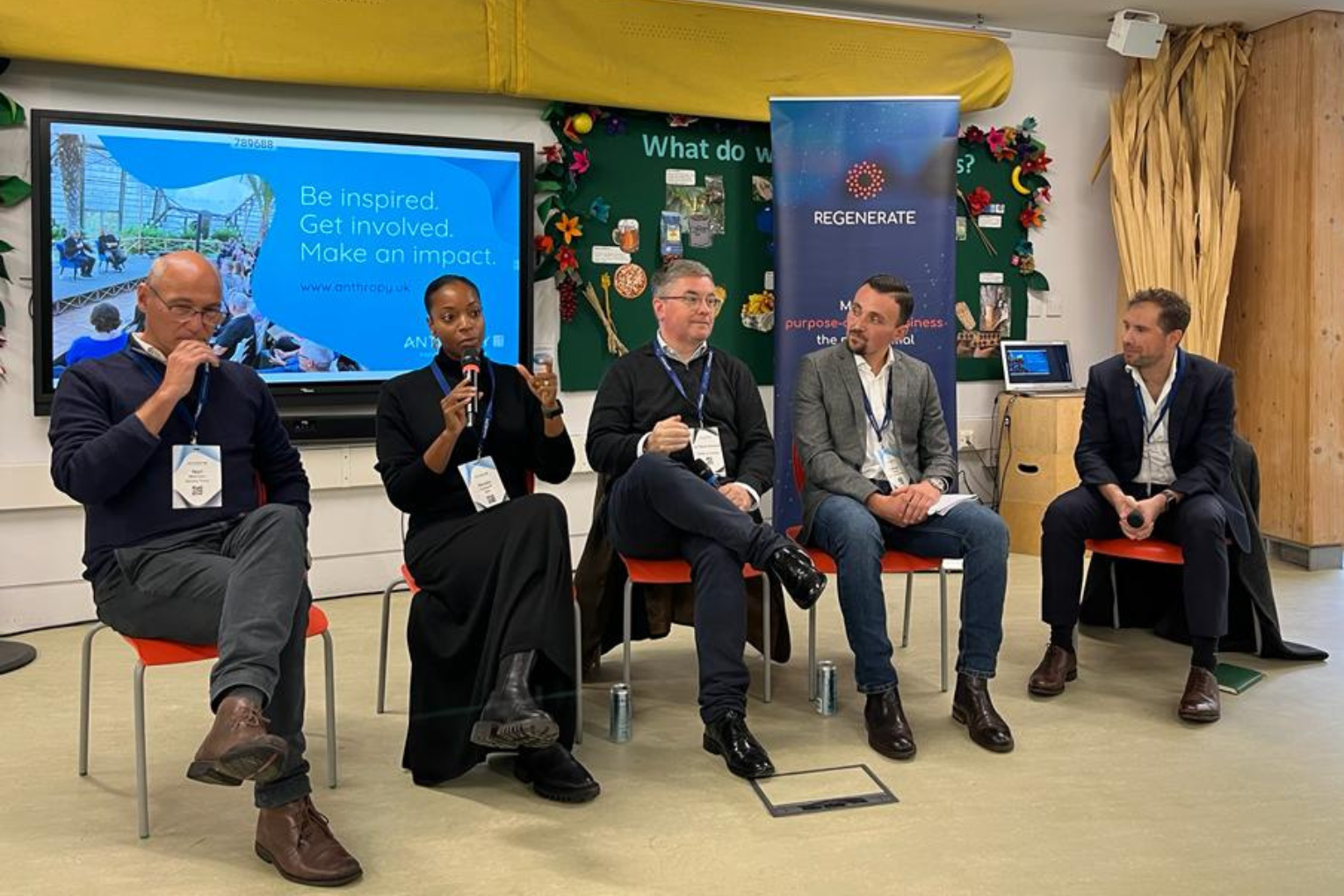What happens when over 1,500 leaders gather to discuss the country’s most wicked challenges?
It’s been just over a month since the dust settled on Anthropy 2023. Now in its second year, the three-day conference encourages business leaders, academics, influencers and politicians to leave their egos and silos at the door and spark sustainable systems change by together setting out a vision for a better Britain.
As Storm Ciaran rolled its way over Cornwall’s Eden Project and rain trickled down its fantastic rainforest biomes, we gathered four fantastic panellists to discuss the role that businesses can play in tackling poverty. Despite nearly one million job vacancies in the UK, millions of marginalised individuals are frozen out of good job opportunities and are not getting a fair shot at them.
The result was a fascinating conversation that brought out the importance of how best to retain and support marginalised people into work - and not just focusing efforts on getting them through the door. We discussed the unintended (and often underestimated) consequences of hiring, say, an ex-offender, care leaver or homeless individual without sufficient support; which, in its worst case scenario, can result in deepening the effects of poverty if that hire ultimately does not work out.
Our executive director Ed Boyd is joined in conversation with Neil Morrison (Director of Human Resources at Severn Trent), Natalie Campbell MBE (Social Entrepreneur, Broadcaster and Co-CEO of Belu), Sir Robert Buckland (Conservative MP for South Swindon) and George Grieves (MD & Founder of Positive Transformation Group).
Truly inclusive recruitment, however, is not just about implementing adequate support systems, training or mentoring. It demands a radical mindset shift around how we think about disadvantage. Panellist George Greaves spoke about lived experience being too easily overlooked in our society when it should be considered a ‘superpower’ that, to the same extent as formal qualifications, enriches workplace culture and overall performance. Employers need to more readily embrace the specific talents of diverse candidates rather than assess them against a set job description and an idealised set of competencies. We also loved Natalie Campbell’s point on the dangers of unintentionally ‘othering’ marginalised talent in the workplace. The offer of extra wraparound support can be highly effective if carried out thoughtfully, and in a way that avoids making stereotypical assumptions about an individual’s needs by explicitly singling them out for extra help. Overall, a really insightful conversation covering the many dimensions of inclusive recruitment.
Anthropy tackled tough topics and uncomfortable conversations, from inclusive leadership and youth unemployment to financial equality and the implications of accelerating the race to net zero. As one young attendee looked panellists in the eye, half-hopeful, half-anguished and asked: “How do I know you’ll follow through with tangible action after this event ends?” After over 200 sessions about change, transformation and radical mindset shifts, it is crucial that momentum from those conversations and flurries of ideas does not melt into thin air.
Watch this space as we power on advocating for the systems change outlined in our Good Jobs Project report, to radically transform the conditions in which employers operate so that recruiting and retaining the UK’s most marginalised individuals becomes easier and mainstream practice.
A huge thanks to our panellists and the Anthropy UK team for hosting such a monumental event!


